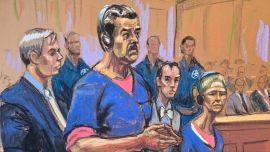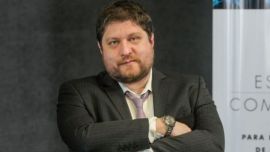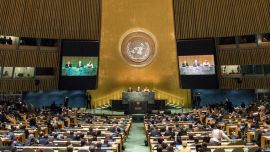Brazil President Luiz Inácio Lula da Silva declared that his country is "back in the region" after joining the heads of state and government of 14 Latin American countries in Buenos Aires for a regional summit.
Lula arrived in the Argentine capital looking to rebuild bridges after his far-right predecessor Jair Bolsonaro had pulled out of the grouping.
"Brazil is back in the region and ready to work side-by-side with you with a very strong feeling of solidarity and closeness," said the 77-year-old leader during the seventh Community of Latin American and Caribbean States (CELAC) summit, bringing together 33 states from the region.
Lula was one of the founders of CELAC, during the first "pink wave" of leftward political shifts on the continent in the first decade of the century.
But Bolsonaro pulled Brazil out of the group over what he perceived as its support for undemocratic governments in Nicaragua, Venezuela and Cuba.
Lula spoke about the "multiple crises" affecting the world – from the pandemic to climate change, geopolitical tensions, food insecurities and threats to democracy.
"All this happens in the midst of an unacceptable rise in inequality, poverty and hunger," said Lula, the only leader to publicise his speech at the summit.
Democracy and the threats it faces was a central theme of the summit, especially from on the far right.
"We cannot allow the recalcitrant and fascist far right to put our institutions and our people in peril," said Argentina's President Alberto Fernandez, the forum's serving president for the summit taking place in his country, said in his opening remarks.
The Peronist leader pointed to the riots by Bolsonaro supporters at the seats of power in Brasilia earlier this month and the alleged attempt to assassinate his vice-president, Cristina Fernández de Kirchner, in September.
But Fernández made no mention of communist Cuba or the accusations of political oppression made against radical leftist regimes in Venezuela, Nicaragua and Bolivia.
'Latin America is bankrupt'
Host Argentina this week hailed a "new climate in Latin America", with the region ushering in a fresh wave of left or centre-left governments since 2018, including Mexico, Argentina, Honduras, Chile, Colombia and Brazil.
A forum for consultation and cooperation, CELAC has no power to enforce any agreements between its members.
And while Fernández stressed the need to "strengthen the institutions in our region," CELAC is struggling to unite members over successive regional crises, like Peru.
"Latin America is bankrupt from the institutional point of view (...) it has not succeeded in integrating collectively into the world," Ignacio Bartesaghi, an expert in international relations at the Catholic University of Uruguay, told AFP.
"There is not even certain basic consensus in Latin America, as on the difference between a democracy and a dictatorship," Bartesaghi stressed.
"There are (at CELAC) presidents who do not even recognize each other," he noted, alluding to situations such as Paraguay's Mario Abdo Benítez, whose country broke diplomatic relations with Nicolás Maduro's Venezuela in 2019.
'Absence of dialogue'
Maduro called off his own trip to the gathering at the last minute, citing "a risk of aggression" from "the neo-fascist right," a possible reference to some Argentine opposition politicians calling for him to be arrested on arrival.
Other significant absentees in Buenos Aires include Mexico's left-wing President Andrés Manuel López Obrador, leader of the second largest economy in Latin America and host in 2021 of the last CELAC summit.
CELAC however remains the partner of choice for China and the European Union to negotiate when cooperating with the region.
But even then, "the impossibility of holding an EU-CELAC summit since the last one in 2015 illustrates... the absence of a solid bi-regional political dialogue," said Bernabe Malacalza, researcher in international relations at Argentina's national research centre CONICET.
In this sense, the return of Lula could give a boost to certain sub-regional issues, such as the free-trade agreement between the EU and the Mercosur group which comprises Brazil, Argentina, Uruguay and Paraguay.
The deal was finalised in 2019 but never ratified, due in particular to concerns about Bolsonaro's environmental policy.
Lula has indicated a willingness to resume contacts.
related news
by Philippe Bernes-Lasserre & Mauricio Rabuffetti, AFP


























Comments